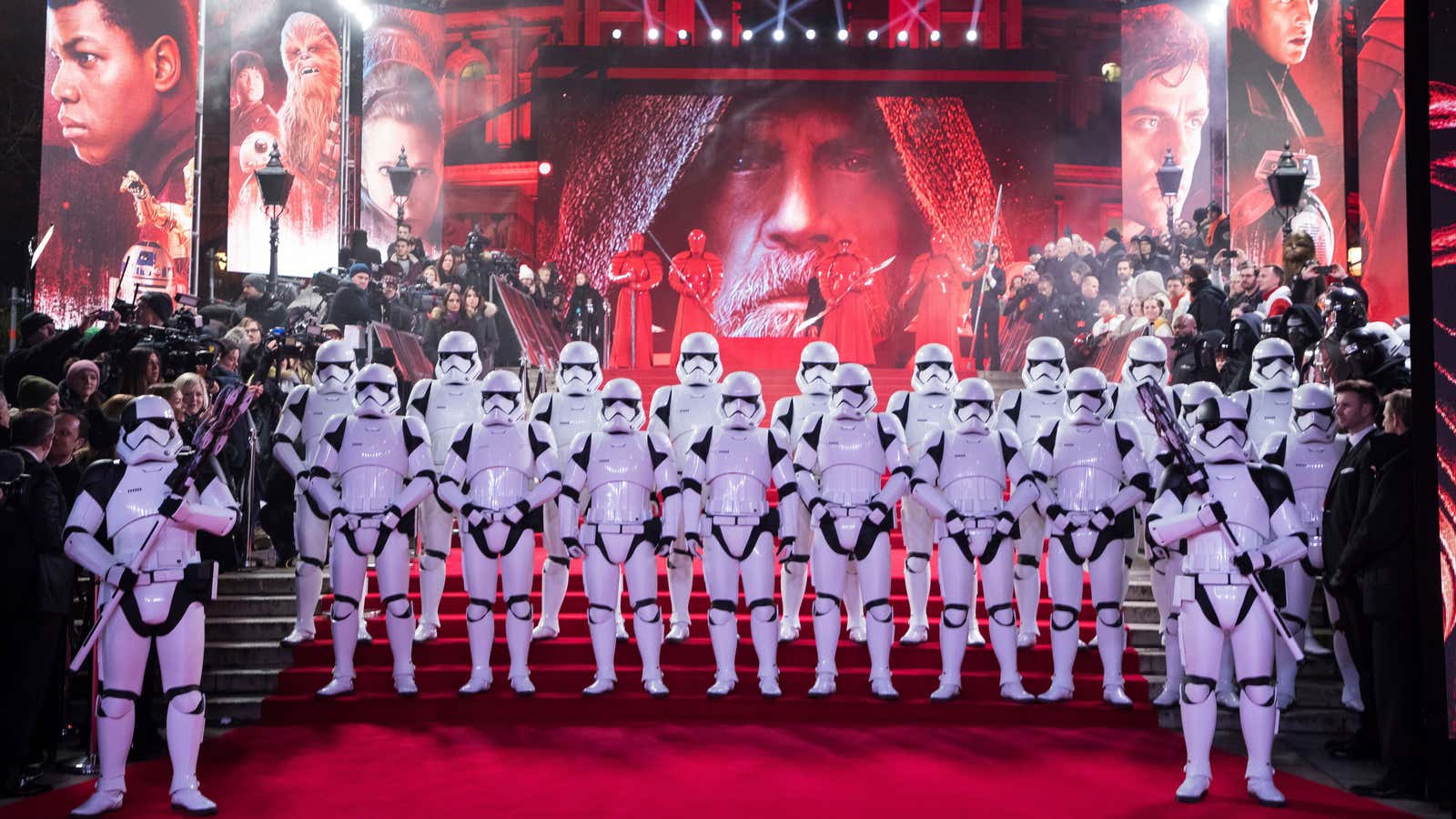Star Wars internet trolls are declaring victory after Marvel Comics fired a prominent writer who was working on several new projects for the Disney-owned company.
Chuck Wendig, who rustled far-right jimmies when he introduced a gay character in his 2015 novel Star Wars: Aftermath, said on Friday (Oct. 12) that Marvel took him off two new Star Wars comics, as well as an unannounced book. In a blog post, Wendig claimed that Marvel was unhappy about his vulgar political tweets.
Marvel has confirmed that Wendig and the company have parted ways, but declined to elaborate on the reason. Wendig has long used his Twitter feed to express his unabashedly left-wing political views, but a recent series of tweets in which the writer trashed the GOP following the Brett Kavanaugh hearings was perhaps the impetus for the firing. “Winter is coming, you callous fucknecks, you prolapsed assholes, you grotesque monsters, you racists and rapists and wretched abusers, you vengeful petty horrors,” Wendig wrote.
A Marvel source told Entertainment Weekly that it was not Wendig’s views that got him fired, but rather the vulgarity with which he expressed them, which, if true, would be odd coming from the company that makes Deadpool. Wendig told Vulture that he never received any kind of warning from Marvel about his tweets prior to being fired.
Wendig has experienced years of well-coordinated online abuse and targeted harassment ever since he put an LGBT character in his Aftermath novel trilogy, which helps bridge the story gap between 1983’s Return of the Jedi and 2015’s The Force Awakens. One need only type his name into YouTube to see a mere glimpse of the obsessive, homophobic, and often racist vitriol directed at Wendig for the sole act of creating a gay Star Wars character.
But that’s nothing new for a small but vocal and increasingly powerful segment of Star Wars fans who feel as though the franchise belongs to them, and will harass anyone who dares think differently—including and especially writers seeking to make the space franchise a more diverse and welcoming community. The harassment of Wendig and his subsequent firing is part of a deeply troubling pattern of corporations—Disney specifically—catering to the whims of its most toxic fanbases.
Chelsea Cain, another Marvel comics writer who has experienced targeted harassment, was also recently fired by the Disney-owned company. In both instances, the trolls who have done the harassing have celebrated Disney parting ways with the target of their harassment.
The Last Jedi star Kelly Marie Tran, an Asian-American actress whose parents are Vietnamese refugees, was forced off social media after she was relentlessly harassed by racists who disapproved of her character. And James Gunn, the director of the Guardians of the Galaxy franchise, was fired by Disney in August after an online campaign dug up 10-year-old tweets by the filmmaker in which he joked, admittedly quite tastelessly, about things such as rape and pedophilia.
Wendig’s firing is similarly being celebrated across alt-right blogs and “Comicsgate” communities (a nebulous online hate group that wants perceived “social justice warriors” out of the comics industry). Some fandoms have become so awful that creators are forced to preemptively apologize to them in order to avoid being attacked for doing things such as daring to write new stories in an established franchise.
This is likely to continue so long as companies keep allowing the very worst fans to call the shots and wield influence so disproportionate to their size. And Star Wars’ racist, homophonic, misogynist fan cluster, perhaps elevated by Russian online bots and trolls to seem bigger than it actually is, is the worst one of all.
